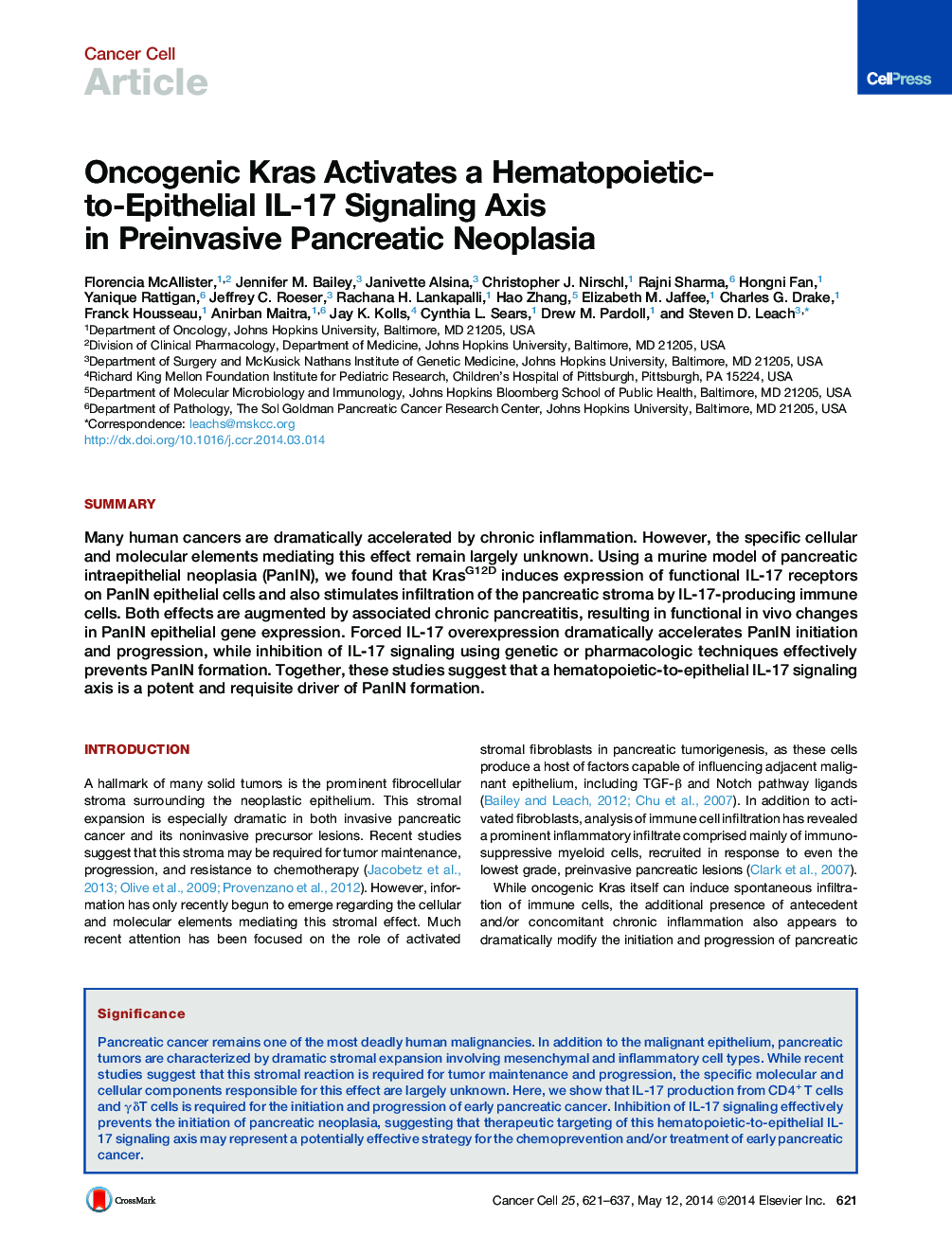| Article ID | Journal | Published Year | Pages | File Type |
|---|---|---|---|---|
| 2108027 | Cancer Cell | 2014 | 17 Pages |
•IL-17+ T cells are recruited to the pancreas in response to Kras and inflammation•IL-17A overexpression accelerates PanIN initiation and progression•Inhibition of IL-17 signaling effectively prevents PanIN initiation and progression•Kras activates expression of functional IL-17 receptors on PanIN epithelium
SummaryMany human cancers are dramatically accelerated by chronic inflammation. However, the specific cellular and molecular elements mediating this effect remain largely unknown. Using a murine model of pancreatic intraepithelial neoplasia (PanIN), we found that KrasG12D induces expression of functional IL-17 receptors on PanIN epithelial cells and also stimulates infiltration of the pancreatic stroma by IL-17-producing immune cells. Both effects are augmented by associated chronic pancreatitis, resulting in functional in vivo changes in PanIN epithelial gene expression. Forced IL-17 overexpression dramatically accelerates PanIN initiation and progression, while inhibition of IL-17 signaling using genetic or pharmacologic techniques effectively prevents PanIN formation. Together, these studies suggest that a hematopoietic-to-epithelial IL-17 signaling axis is a potent and requisite driver of PanIN formation.
Graphical AbstractFigure optionsDownload full-size imageDownload high-quality image (114 K)Download as PowerPoint slide
